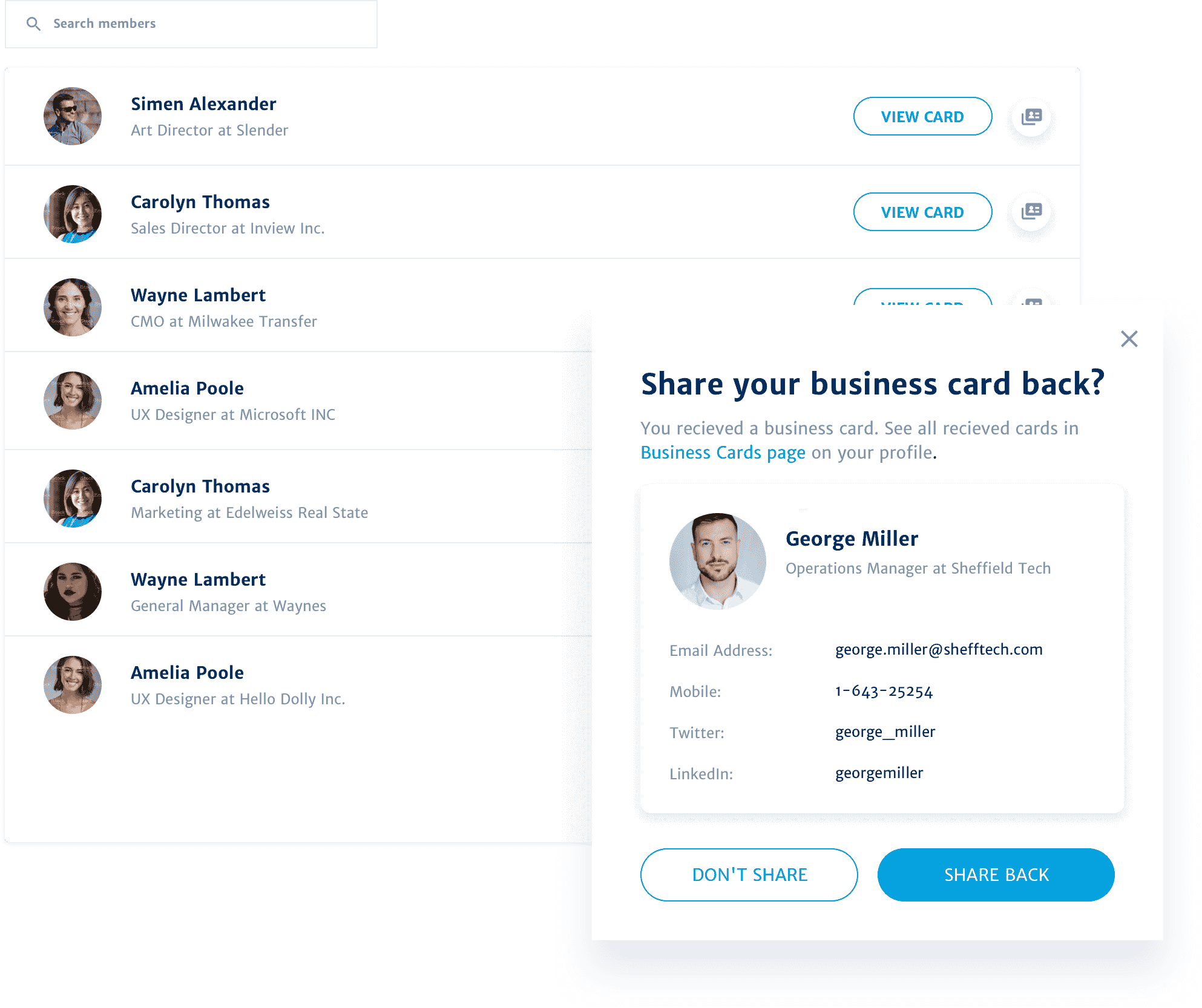
Key Takeaways
- Webinars are becoming more like in-person seminars. In the past, webinars were limited in their ability to offer networking and paid ticketing. However, this is changing rapidly. Many webinar platforms now offer features that make it possible to charge for tickets and to connect attendees with each other. This is making webinars a more attractive option for businesses that want to generate leads and build relationships with customers.
- This is due to the COVID-19 pandemic. The COVID-19 pandemic forced many events to move online. This led to a surge in demand for webinars, as businesses and organizations scrambled to find ways to connect with their audiences. As a result, webinar platforms have invested heavily in new features and functionality to make webinars more engaging and interactive.
- As webinars become more sophisticated, they will become a more attractive option for businesses and attendees alike. Webinars offer a number of advantages over in-person seminars, including: They are more cost-effective. They can reach a wider audience. They are easier to schedule and attend. They can be recorded and watched later. They can be archived and reused.
It used to be that when choosing between hosting an event like a seminar or a webinar, there would need to be sacrifices made for either.
An in-person seminar is more or less determinant on the ability that attendees can physically make it to the event, lowering its overall footprint, but then you could have a paid event where attendees could purchase tickets.
Whereas for webinars two major aspects are usually sacrificed, paid ticketing becomes difficult to implement when links can be shared freely, and networking is was almost impossible popular webinar platforms.
The main benefits of webinars had been its much wider and global footprint.
Wikipedia has defined these 2 event types individually:
- A seminar is ‘a meeting held for the exchange of useful information by members of a common business community.’
- A webinar is 'an interactive seminar conducted via the World Wide Web. Usually a live presentation, lecture, or workshop that happens in real-time, as users participate through chatting, video-chatting, file-sharing, or asking questions with a microphone.’
Things are changing quickly, however, and the gap between these event formats is narrowing, so let's take a look at what's being brought to the table that might make webinars the new in-demand event format in the near future.
Seminars and In-Person Events

Seminars and other physical in-person events have and generally will always be a great way to engage an audience. That's not quite the case anymore.
Multi-track events, multi-day panels, Q&As, break out sessions, and more add to a seminar's value because though it's not openly said, most people go to events for the networking aspect as much as the content of the event. For that reason events had always out-paced seminars in the past.
Where else could you target customers for a quick chat? It's more engaging, higher quality lead generation, and of course, the content is more raw and unapologetically tangible at a seminar.
Furthermore, the venue of an event gives a simple aspect that makes it easier to charge for tickets. The front door.
By having control over who can enter the event, it becomes more exclusive, and by having exclusivity, you can then add value to your ticketing so long as your audience shares that same value (so don't skimp on the content).
Webinars

Before, webinars would have been considered a non-ROI focus for a lot of business's event strategies. When it comes to webinars, links to the webinar can be shared and were, for a time, easily accessible by anyone who had the link. There were no front-doors.
Furthermore, with your fairly run of the mill webinar platform of choice only a year ago, chances were you lacked a lot of features that would have really rounded out the viewer's experience, like even having the attendees the ability to speak to the host.
Direct messaging, profile viewing, and other examples of engagement tools were missing, and some platforms were lucky to even offer live chat during the webinar for Q&As and discussions.
Networking and Paid Ticketing Coming to Webinars

With the onset of the COVID-19 pandemic, almost all in-person events were cancelled in a bid to break the circuit of the virus, and in doing so left many events translating to an online model through webinars.
This has spurred webinar platforms to rapidly change and develop more in-demand tools to help companies monetize their online events, and then benefit attendees with better networking options.
Platforms now require or can require accounts to be made with links that are only available to those who have an account, and it can even narrow it down to those that have an account and then also have confirmed the purchase of the ticket.
This means that webinars now have that front door they so desperately needed as links cannot be shared and accessed publically.
It's now becoming more and more common for webinars to charge tickets for their events. But like seminars, it's important to offer higher quality content that attendees agree is valuable.
Further, with the updates on these major platforms, or integrations with tools that allow for these updates, attendees are being offered more engaging ways to network at webinars. Attendees who seek evens for networking opportunities will easily find a digital strategy for themselves now as webinars offer better features.
Some features like direct messaging already soothe a lot of the headaches for attendees who crave networking while on a webinar.
For hosts who want focus on the webinar and less direct messaging, distracting other attendees can offer digital business card exchanging so that attendees can create their own digital business contact name card for themselves and exchange with other attendees who can choose to accept and reply with their own cards which is less distracting than text conversation butting into their webinar experience.
Moreover, In the past, webinars were often considered a low-ROI event strategy. This was because they were easy to attend and there were no features to engage attendees or track their progress. However, with the advent of more sophisticated webinar platforms, webinars can now be a valuable tool for businesses.
One way to make sure that your webinars are engaging and effective is to use webinar survey questions. These questions can be used to collect feedback from attendees on a variety of topics, including the content of the webinar, the speaker, the technology, and the overall experience.
By taking the time to collect feedback from your attendees, you can identify areas where your webinars can be improved. This feedback can then be used to make changes to your webinars, such as adding more interactive elements, improving the speaker's delivery, or using a different webinar platform.
In addition to improving the quality of your webinars, survey questions can also be used to measure the ROI of your webinars. By asking attendees questions about how they benefited from the webinar, you can get a sense of how much value they received. This information can then be used to justify the cost of your webinars and to make decisions about future webinars.
The Gap is Narrowing

The big difference between webinars and seminars had always been a trade-off that needed to be made. Did you want more engagement with a larger audience?
Then you needed a webinar that delivered less networking to attendees, and you couldn't really charge them for attending.
Did you want an event with exclusivity that you could charge for?
Then you needed an in-person seminar that could offer benefits like networking for instance that you could count on for bringing value to your tickets.
These questions will likely become less and less pertinent as it seems that webinars are catching up and filling the gap that used to exist between the two event formats.
Truly webinars have made strides even as recently as in the past month, offering features that fill the needs of attendees and offer tools that make it more realistic to monetize an online event.
Soon you'll find that in-person events will be offering better content, more exclusivity, or even cheaper ticket prices so that they can start to compete in a world where webinars are becoming the easier option for businesses going forward after COVID-19.
Happy hosting!
Looking for a way to enhance and monetize your webinars? Consider checking out our webinar solution, or just book a demo and we'll show you how it works for 30 minutes of your time.



